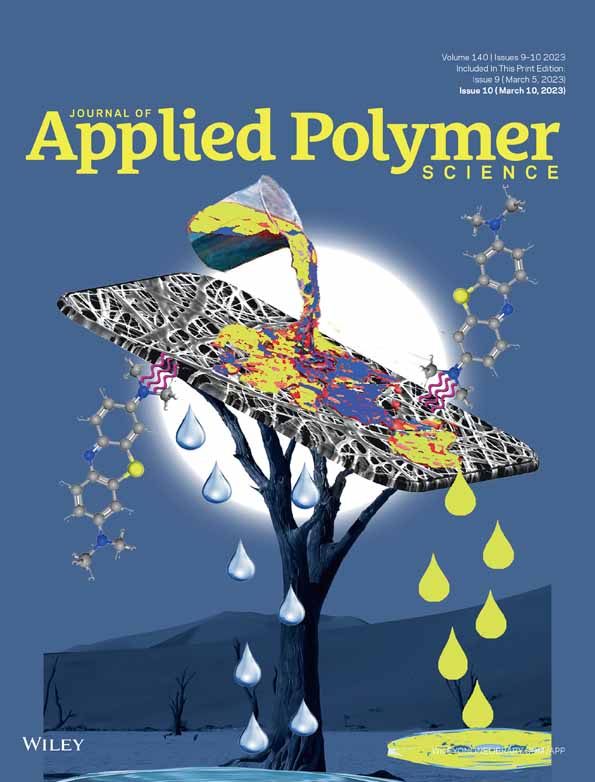Reinforcing and plasticizing effects of reclaimed rubber on the vulcanization and properties of natural rubber
Funding information: Ministry of Science and Technology, Grant/Award Number: 2021YFE0105200; National Centre for Research and Development, Grant/Award Number: WPC 2/SUSDEV4REC/2021
Abstract
The production of high-added value reclaimed rubber (RR) is of great significance for the sustainability of rubber industries. To green recycle waste rubbers and broaden the application of RR, a RR material with potential reinforcing and plasticizing effects on nature rubber (NR) composites are prepared by a thermo-oxidative reclamation process. The reclamation degree of RR is controlled by adjusting the content of soybean oil. The plasticizing effect is demonstrated by the decrease of torque during vulcanization and the enhancement of elongation at break of NR/RR composites with the increasing reclamation of RR. The tensile strength of NR/RR composites is enhanced by adding the RR, and the existence of RR also improves the thermal stability and rheological properties of NR/RR composites. The formation of new bound rubber in NR/RR compound indicates the reinforcing ability of RR. In addition, the average particle size of RR reaches nano-scale according to scanning electron microscope photographs and its dispersion in NR/RR compounds is improved with the increasing reclamation degree of RR as shown in Payne effect. This work demonstrates the reinforcing and plasticizing ability of the RR, which is beneficial to improving the added value of reclaimed and broadening its application.
CONFLICT OF INTEREST
The authors declare no conflicts of interest.
Open Research
DATA AVAILABILITY STATEMENT
The data that support the findings of this study are available on request from the corresponding author. The data are not publicly available due to privacy or ethical restrictions.




